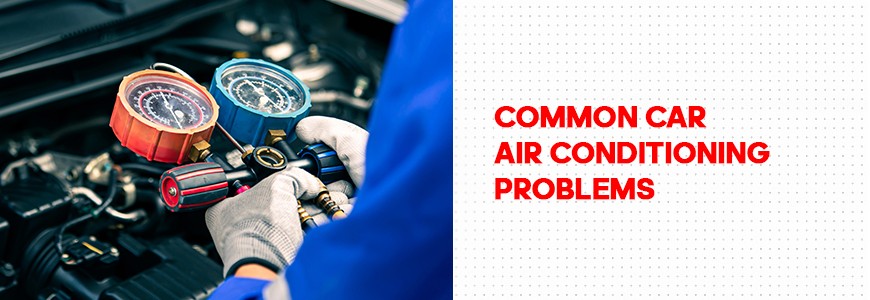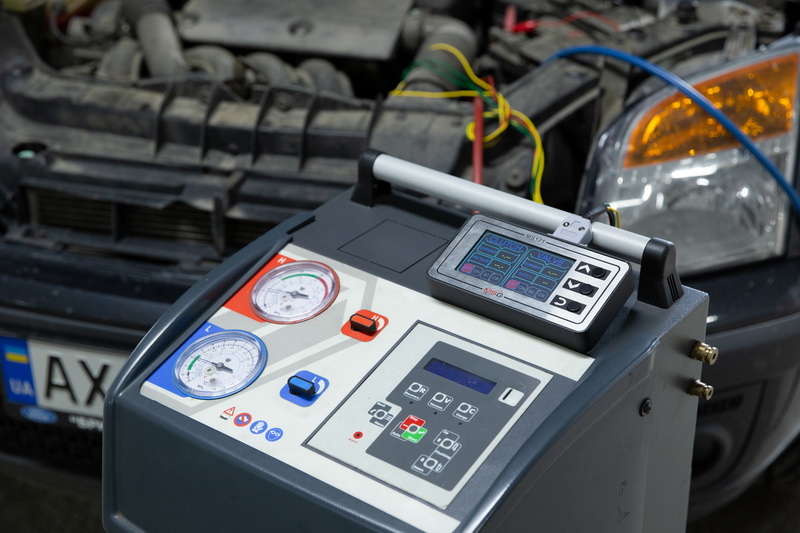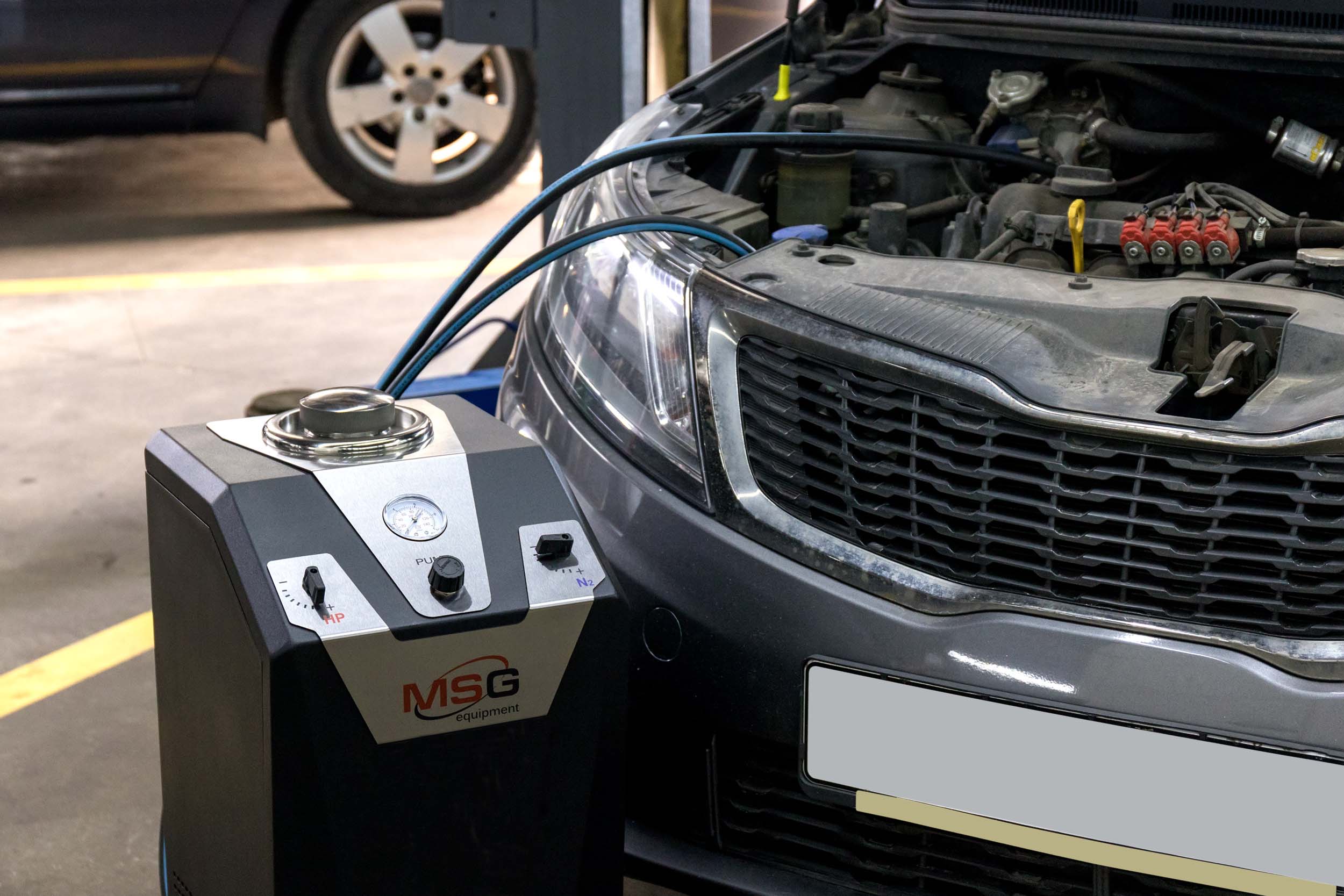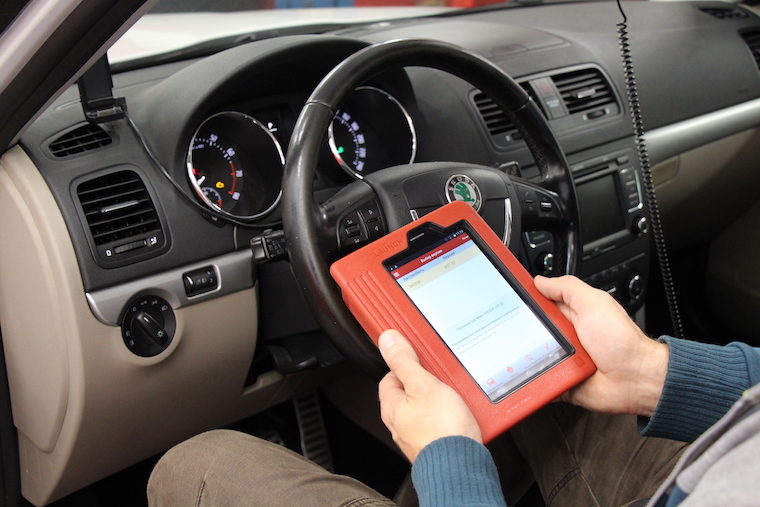
An automobile air conditioner is an indispensable part of modern comfort in a vehicle, used not only during hot summer months but also in the autumn and spring to tackle high humidity and window fogging. For electric vehicles, this system extends the battery life by preventing overheating. Typically, car owners encounter similar issues when using their air conditioners. In this article, we'll discuss some of the most common problems and demonstrate the equipment used to diagnose these malfunctions.
Typical air conditioner malfunctions
When car owners visit an auto repair shop, they usually complain about:
• Insufficient cooling or its complete absence.
• Unpleasant odors when the air conditioner is running.
One of the most common problems is insufficient cooling of the air coming from the conditioner. This can be caused by various reasons, including:
• Refrigerant leakage.
• System component blockages.
• Compressor malfunctions.
• Electronic failures.
Refrigerant leakage can be a serious issue, not only reducing the efficiency of the air conditioner but also potentially leading to costly breakdowns. Refrigerant in the conditioning system is a highly volatile substance, so leaks are inevitable, and the amount of refrigerant in each system is strictly regulated. A decrease in refrigerant quantity results in decreased system efficiency and increased compressor load. To determine the amount of refrigerant in the system, all refrigerant must be evacuated using a charging station, and the resulting refrigerant weight is measured. If the weight significantly differs from the norm, the system needs to be checked for leaks. A fluorescent dye is added to the system to detect leaks, and leak points are identified using an ultraviolet flashlight.

System component blockages can be of two types: external and internal.
External blockages involve mechanical fouling of the condenser, where refrigerant transitions from gaseous to liquid state, allowing heat exchange with the surrounding environment. The condenser is usually located behind the engine cooling radiator. Over time, the space between them gets clogged with dirt, which deteriorates heat exchange and consequently the air conditioner's performance.
Internal blockages are typically caused by oil aging, losing its original properties over years of use. Deposits form in such oil, causing clogging of the thermostatic expansion valve (TXV). Diagnosis of internal blockages is performed by measuring the pressure in the high and low-pressure lines.
Compressor malfunctions usually result in the complete inability of the system to cool the air. Compressor failures can be simple or complex. Diagnosis of the compressor should start with checking the electromagnetic clutch and/or control valve. For this purpose, a tester such as the MS121 is used, allowing these components to be checked on the vehicle without compressor disassembly. Electromagnetic clutch and/or control valve malfunctions can be easily rectified. Serious compressor failures are often caused by significant refrigerant leakage, system component blockages, and the owner's neglect of air conditioner problems. Assessing the technical condition of the air conditioner compressor is possible only on the special bench MS111, for belt-driven compressors, or MS112 for electric vehicle compressors.
Usually, with a serious air conditioner malfunction, it is necessary to flush the system pipelines from contaminants. To solve this problem, the MS101P station is used.

Faulty Electronics
Modern cars are filled with electronics, and the air conditioning system is no exception. There are many places in the electrical system where malfunctions can occur. Diagnosis of this type of malfunction is performed using a diagnostic scanner.

Unpleasant odors during air conditioner operation are caused by mold and bacteria growth in the air ducts and on the evaporator. Due to condensation on the evaporator and favorable temperatures for bacterial reproduction, their growth accelerates, resulting in unpleasant odors in the cabin. Disinfection of the air conditioning system using specialized agents is the only way to eliminate this problem.
In conclusion, it should be noted that many problems with the car air conditioner can be prevented through regular maintenance and technical inspections. In case of air conditioner issues, it is advisable to consult a qualified specialist. Necessary knowledge in air conditioner diagnostics, maintenance, and repair can be obtained by taking a special online course from the MSG Equipment Training Center.
For detailed consultation on equipment for diagnosing car air conditioners, you can contact our managers - write to messenger or call: +38 073 529 64 26, +48 833 13 19 70, +48 886 89 30 56 (Viber, WhatsApp, Telegram).



COMMENTS